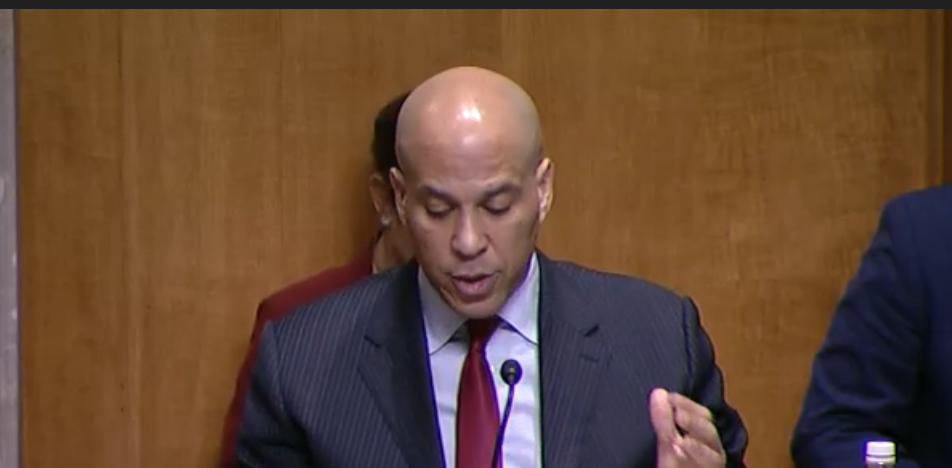CORONAVIRUS: Fact Sheet: Booker Secures Key New Jersey Priorities in Senate-Passed Relief Package

CORONAVIRUS: Fact Sheet: Booker Secures Key New Jersey Priorities in Senate-Passed Relief Package
WASHINGTON, D.C. – The coronavirus relief package passed by the Senate late last night includes a number of key priorities advanced by U.S. Senator Cory Booker (D-NJ). These programs include:
Direct cash assistance to Americans struggling from COVID-19 fallout: Each eligible taxpayer will receive a $1,200 cash payment (income restrictions apply, beginning at $75,000); an additional $500 cash payment is available per child.
Senator Booker led the charge on this idea with his bold proposal to distribute a $2,000 cash payment to individuals, with potential second and third payments this summer and fall if the economic pain persists. Booker was also a leading voice to eliminate the minimum earnings requirement and income “phase in” for the rebates, thereby ensuring that individuals with very little or no income are able to participate.
Emergency funding for HBCUs and MSIs: Senator Booker helped secure $1.05 billion in emergency assistance in the relief package to help HBCUs and Minority Serving Institutions, such as Hispanic Serving Institutions and Predominantly Black Institutions, cover COVID-19-related expenses. He also helped include language that gives these institutions flexibility to use funds from previous years to cover COVID-19-related costs. New Jersey is home to 13 Minority Serving Institutions. Booker urged Senate leaders repeatedly over the past several weeks to include such measures.
No Cost-Sharing for Preventative COVID-19 Services: The Senate-passed relief package mandates that COVID-19 preventative services must be covered without any cost-sharing by certain private health plans. Booker was the first member of Congress to advance the ambitious idea of completely eliminating cost-sharing for COVID-19 prevention, testing, and treatment in a bill he introduced earlier this month. The second Coronavirus relief package required that all COVID-19 testing must be free.
Strong funding for state and local health departments: The relief package includes $4.3 billion for the Centers for Disease Control (CDC) to use to support state and local health departments in their response efforts. Booker sent several letters to Senate leaders asking for more resources for these departments, which are on the front-lines of the emergency.
Increased resources for vital Personal Protective Equipment (PPE): The relief package includes $16 billion to replenish the Strategic National Stockpile with PPE and other supplies, and $1 billion to boost domestic supply chains in order to ramp up production of PPE. Booker has sounded the alarm on the lack of PPE for front-line workers and urged negotiators to include funding for such essential gear.
Speedier process for receiving unemployment assistance: The relief bill includes a measure eliminating the “waiting week” requirement for unemployment assistance, which had forced laid-off workers who have satisfied every other eligibility requirement to wait one week before being able to access unemployment assistance. Booker introduced a bill proposing this elimination last week.
Ban on stock buybacks: The relief package includes language banning companies who receive federal assistance from engaging in stock buybacks for the length of the federal loan plus one year. Booker has been an outspoken critic of stock buybacks and has introduced legislation in the last two Congresses to ensure that companies that buy back stock must also pay a commensurate amount to their workers.
Free videoconferencing for people behind bars, in lieu of in-person visits: The relief package includes language giving the Attorney General authority to grant free videoconferencing for people behind bars during the public health emergency, since in-person visits have been suspended. Booker had urged the Director of the Bureau of Prisons to implement this change.
Increased flexibility to reduce confinement to account for COVID-19 vulnerabilities: The relief package includes language giving the Attorney General the flexibility to grant longer periods of home confinement to enable the release of more individuals from BOP custody. Booker has sounded the alarm about the extreme vulnerability people behind bars face due to COVID-19, and has introduced legislation to place vulnerable individuals in community supervision rather than continue to expose them to the risks posed by prison conditions.





